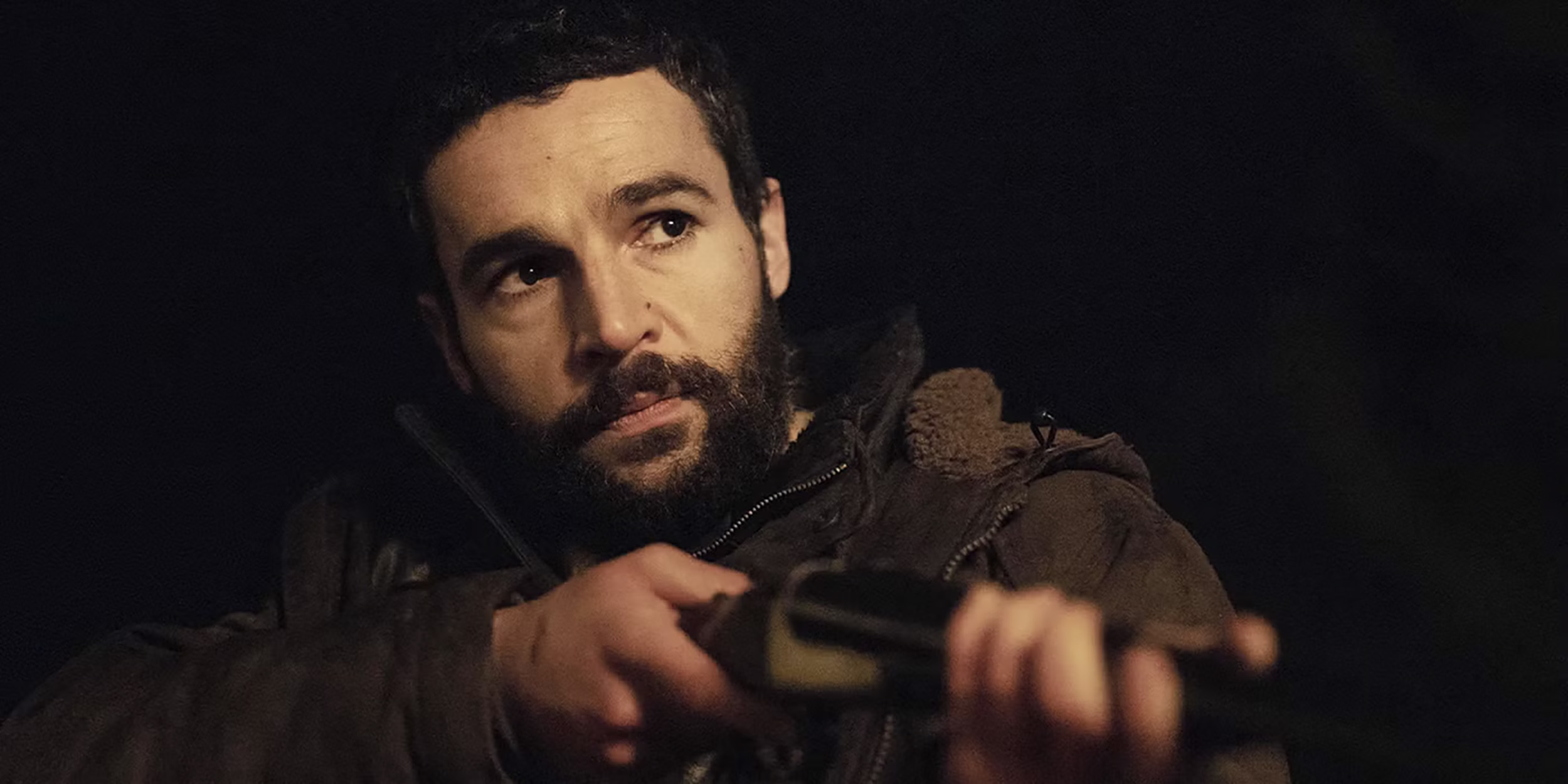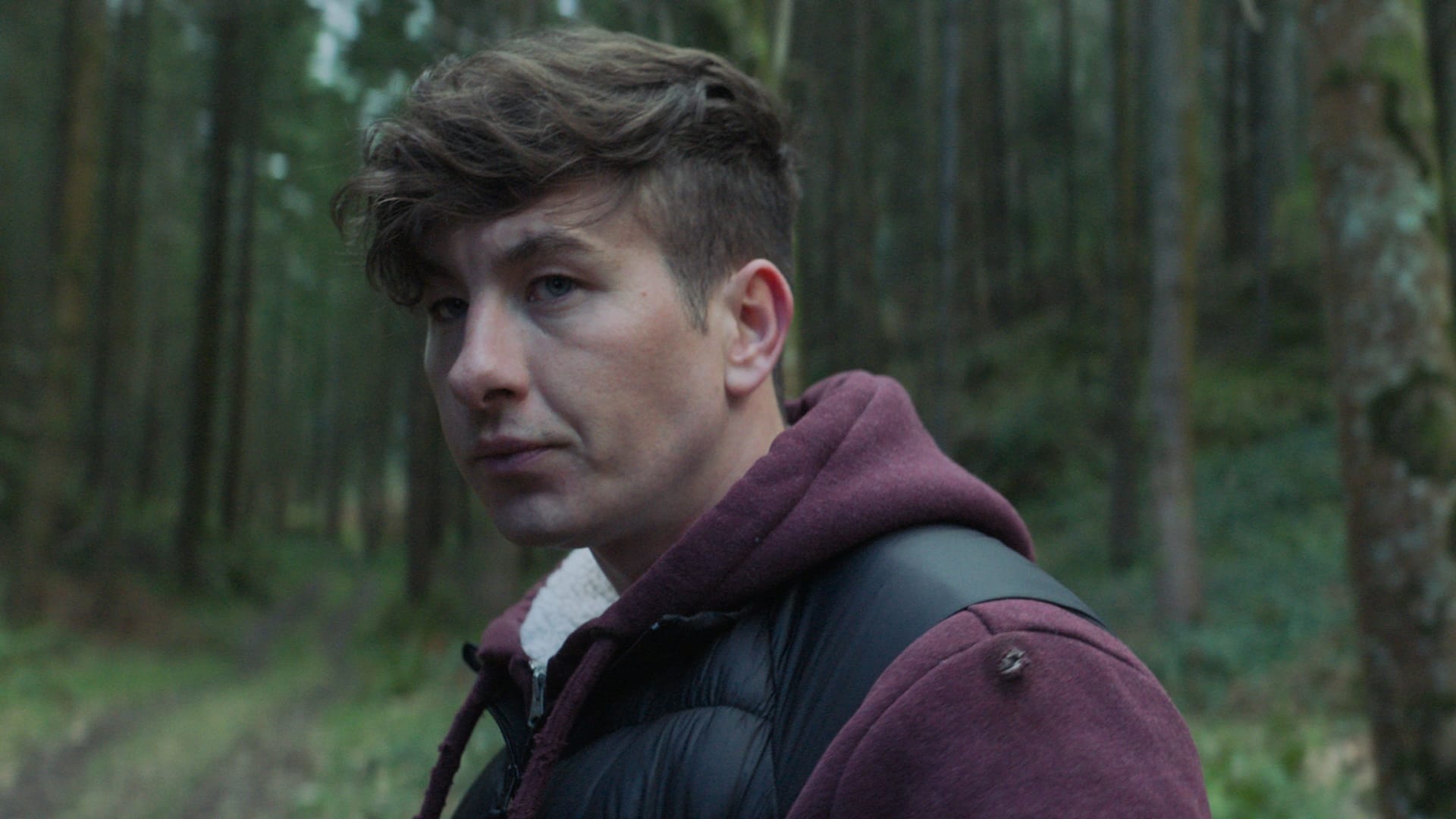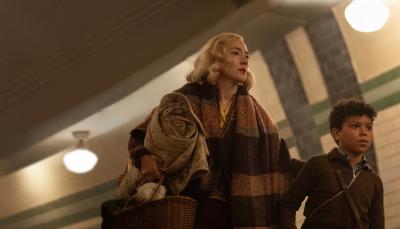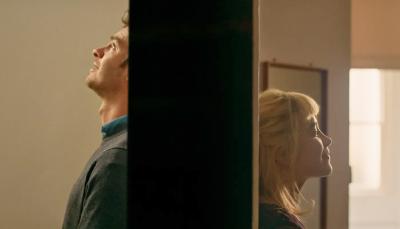'Bring Them Down' Is Buoyed By Its Restraint

Barry Keoghan as Jack and Christopher Abbott as Michael in 'Bring Them Down'
Mubi
Recent high-profile films set in rural Ireland have showcased contrasting tones and genres: the guns-blazing, Liam Neeson-starring In the Land of Saints and Sinners was a Clint Eastwood thriller transposed to coastal Donegal (complete with a noticeably more lively Neeson), while Martin McDonagh’s Oscar-nominated The Banshees of Inisherin opted for a biting comedic tone and a philosophical look at the repressed male psyche. But regardless of their target audience, these films both include streaks of graphic violence. Saints and Sinners and Banshees each choose to either use the Irish historical backdrop as an easy excuse for thrills, where we read the bloody mutilation as an extension of the harsh, territorial conditions of living remotely, or as a microcosmic look at a specific country with a fraught, violent history.
It may be for the better that Bring Them Down chooses to exist somewhere between these two extremes. The film is violent but has many clear thematic nods to divisions, ownership, and intergenerational pain. But chiefly, it’s small in focus; it tapers any fears that we’re getting a heavy-handed allegorical piece and restricts its thrilling bloodshed to only the most intimate, misguided, and permanent outbursts. It dips its toes enough in philosophical themes to make it a noteworthy debut and shows plenty of keen thriller instincts without devolving into turgid, violent stupidity.
Writer-director Christopher Andrews’ debut film is more commendable because of what it doesn’t do, its restraint, and its small, unconventional choices. This is also its most significant flaw; if you’re not tuned into how Andrews avoids easy mistakes, you’re left with an engaging work without novelty or substance.
Michael (Christopher Abbott) is the gruff, reserved son of Ray (Colm Meaney), a disabled, Irish-speaking shepherd whose business is jeopardized by Gary (Paul Ready), a neighboring farmer who’s more than happy to stoke the flames of their feud with illegal sabotage. Gary is married to Caroline (Nora-Jane Noone), who used to be Michael’s girlfriend but thought better of their relationship after Michael crashed his car with her in the backseat.
It’s the first thing Andrews shows us in the film – shot from the driver’s perspective, Michael’s mother, Peggy (Susan Lynch), in the passenger seat, tries her best to break the news to Michael that she’s leaving his father, but the tempestuous young man steers the car off the road – it’s clearly both an intentional choice and the action of someone with little control over his emotions. Peggy loses her life in the crash, and the way we see Michael heavily and dutifully perform his tasks, it’s clear he’s carried guilt and trauma from the incident since. He’s reminded of the violence that’s kept unsteadily inside him when sheep from his father’s flock are stolen, then maimed and mutilated in the windy, Gothic dead of night.
Seeing red when you learn your parents no longer love each other turns out to be a major theme, as Caroline and Ray’s teenage son Jack (Barry Keoghan) soon mirrors Michael’s juvenile behavior, acting out in criminal, aggressive ways when a rift between his mum and dad starts to dominate his home.
Abbott and Keoghan have received deserved praise for high-profile performances over the last few years. However, something about their appearance in Bring Them Down keeps them from being truly impressive. Keoghan taps into the more timid, twitchy energy he showcased in earlier indie roles, but though Bring Them Down was filmed before Banshees went to the Oscars or the internet went crazy over Saltburn, he still feels a tad too old for the role. (He is six years younger than Abbott.) As a result, his journey of clueless adolescent righteousness feels more rote than it should be; you wonder if a younger, less well-known actor would bring a more immediate and sensitive energy to the character.
Abbott is dependable as an indie leading man, and it’s a pleasure to see an American actor not just learn a regional accent but also speak in his character’s native language (in addition to Kneecap, Bring Them Down is bringing Irish Gaelic to the big screen in a big way). However, Michael is a touch too closed-off to hook us properly with his severe dramatic woes, and the character rarely surprises us even when the rural crisis escalates to physical violence – though Andrews keeps the action fairly realistic and always skilfully emphasizes its brutality.
This character thinness isn’t helped by the unconventional but directionless structural choices Andrews makes, jumping from Michael’s perspective to Jack’s, retelling the boiling point of the shepherding feud from both points of view. It shows us the nuance of their impulsive decision-making, painting the older men’s agrarian feud as something without sturdy planning or strategy. Andrews has seemingly chosen this method because it feels inventive in the moment, not because it reveals more about these people or makes us ponder how we empathize with those who make bad decisions. What starts as elemental and bracing turns out to be sparse and hollow, and it really (pun intended) brings the film down.
Bring Them Down is planned for a full U.S. release on Friday, February 7, 2025.






